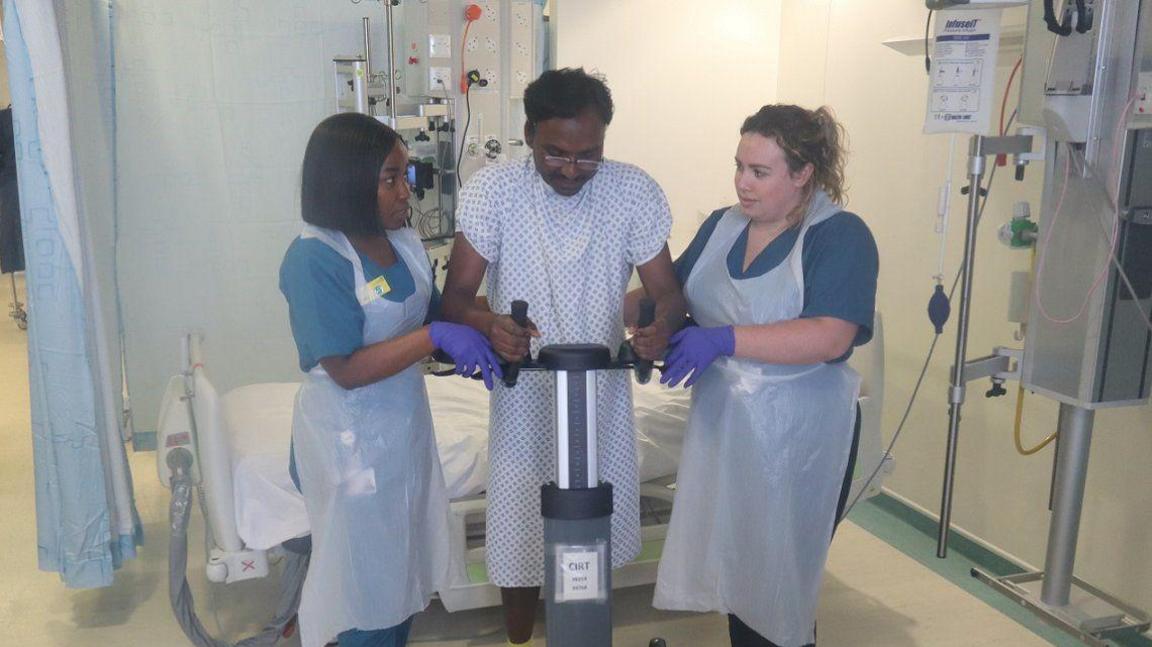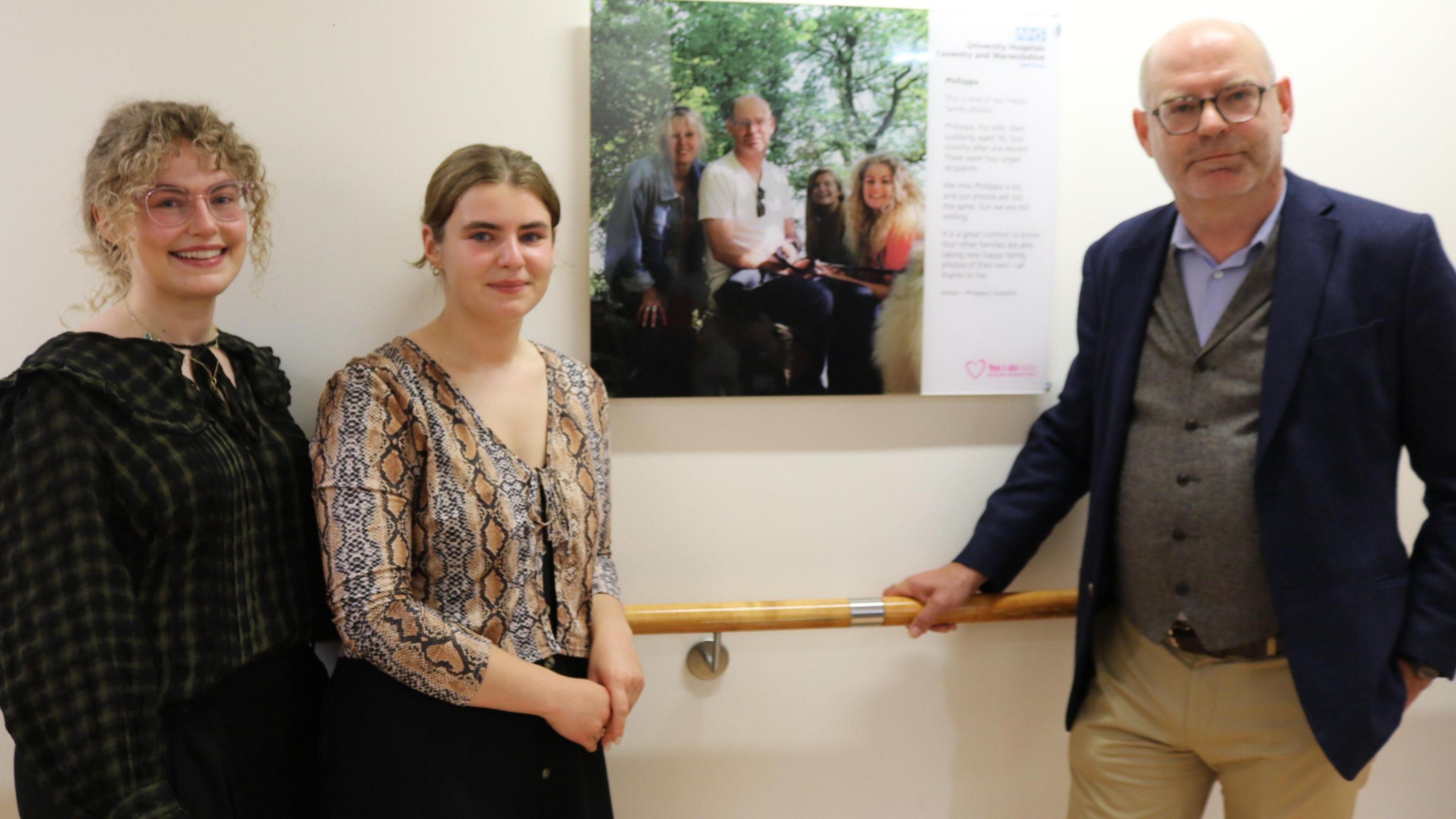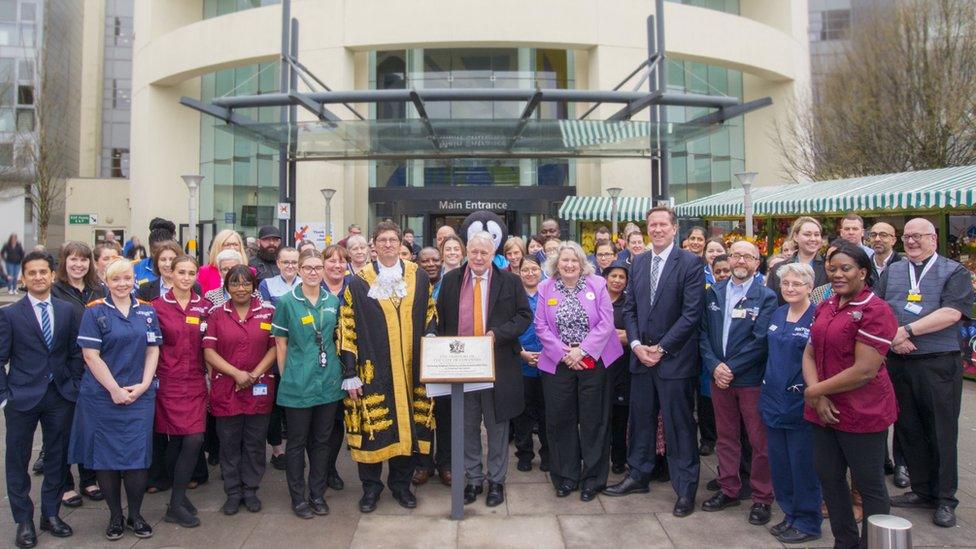Hospitals look to improve critical care rehabilitation

The Phoenix trial is looking to recruit 60 volunteers
- Published
A hospital trust is investigating if extra care can be cost effective in the long-term for patients who have been discharged from critical care.
University Hospitals Coventry and Warwickshire NHS Trust said about half of those patients were later readmitted.
It said a research study funded by funded by the National Institute for Health and Care Research (NIHR) would look at the impact of providing personalised physical rehabilitation and nutrition plans on the ward after leaving an intensive care unit.
The Phoenix study is looking to recruit 60 patients.
The trust said half of those patients would come from the Oxford University Hospitals NHS Foundation Trust, which is also participating.
The study is led by Prof David McWilliams, who said if it was successful it could lead to a wide-scale rethink on rehabilitation.
"When a patient stays in critical care there is a strong focus on supporting their organs and saving their life," he said.
"But while they are receiving this life-saving care they're lying in bed, losing muscle and not receiving adequate nutrition. When they’re moved to a ward, service pressures often mean they may only receive physiotherapy input once or twice a week."
He said the aim of the Phoenix study was to assess the "needs of each individual patient" to optimise their rehabilitation.
"This approach could help to shorten the length of time a patient stays in hospital, reduce the burden on social care, and result in fewer GP visits and readmissions," he said.
Get in touch
Tell us which stories we should cover in Warwickshire
Follow BBC Coventry & Warwickshire on BBC Sounds, Facebook, external, X, external and Instagram, external.
Related topics
- Published27 September 2024

- Published21 March 2023
